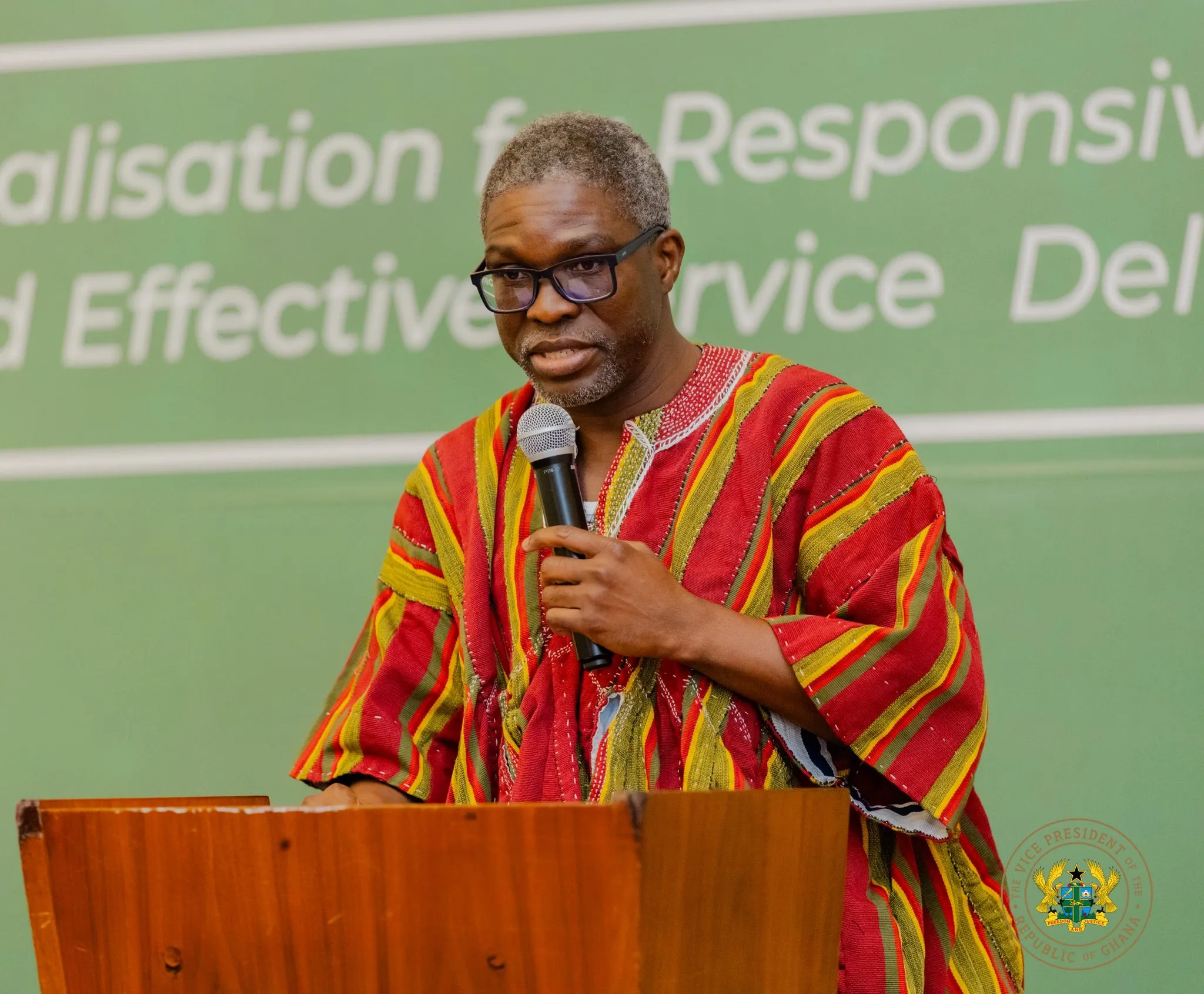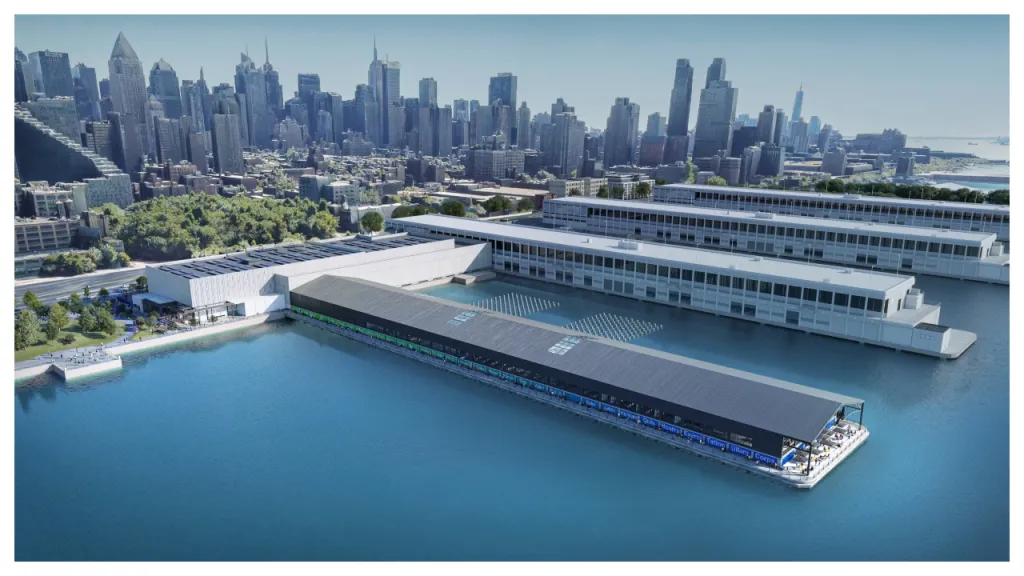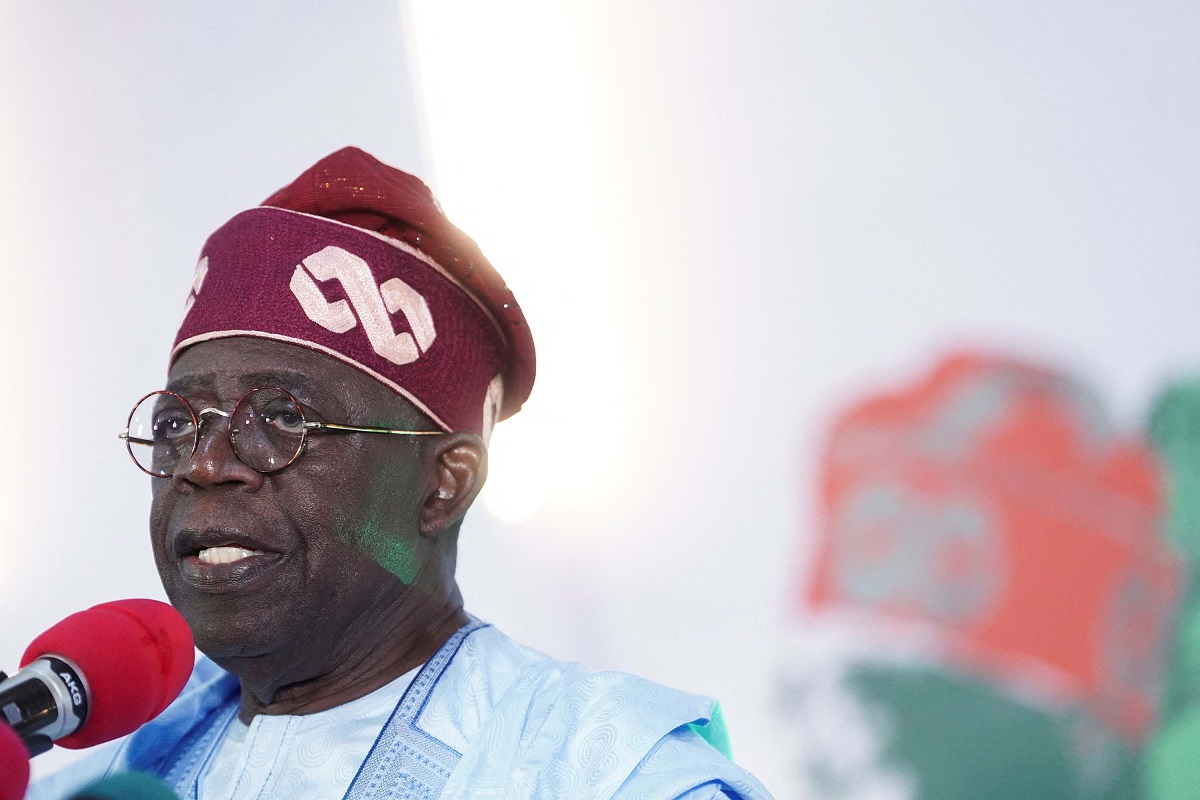By Mark Agodoa
Copyright gbcghanaonline

Accra, Ghana – September 25, 2025 – In a historic and inclusive gathering, the Inter-Ministerial Coordinating Committee on Decentralisation (IMCC) convened the maiden edition of the National Dialogue on Decentralisation and Responsive Governance at the Kempinski Hotel in Accra, under the theme:“Resetting Decentralisation for Responsive Local Governance and Effective Service Delivery.”
The two-day event, held on 25th and 26th September 2025, brought together a wide spectrum of stakeholders, including Honourable Ministers who are IMCC members, Honourable Regional Ministers, Members of Parliament, District Chief Executives, Heads of Institutions, Development Partners, Traditional and Religious Leaders, Civil Society Organisations, Academia, Think Tanks, and Media Practitioners.
Delivering the welcome address, Dr. Gameli Kewuribe Hoedoafia, Executive Secretary of IMCC, emphasized the significance of the dialogue as a turning point in Ghana’s decentralisation journey. He noted that Ghana’s decentralisation formally began in 1988 and was constitutionally enshrined in the 1992 Constitution, which sets the pace for the devolution of administrative and financial authority to the local level.
“Decentralisation is not a policy luxury; it is a democratic necessity,” Dr. Hoedoafia noted. He explained that governance becomes real for the people through education, health, sanitation, and market management. These are the everyday touchpoints where people encounter the state, and they must be delivered effectively at the local level to ensure responsive, inclusive, and accountable governance.
He acknowledged the challenges of fiscal decentralisation, institutional overlaps, and the ongoing debate around the election of MMDCEs, and urged stakeholders to focus on practical solutions that empower local governments and deepen citizen participation.
“Let history record that this Dialogue was not another meeting or talk shop, but the moment when Ghana pressed the reset button,” he concluded.
Opening the dialogue, the Vice President, Prof. Jane Naana Opoku-Agyemang, in her keynote address, reaffirmed the government’s commitment to decentralisation as a cornerstone of national development.
“Building a capable state must begin with functional and ethical local governments,” she said. “Decentralisation must move from an abstract aspiration to a reality that reshapes service delivery and how citizens experience government in their everyday lives.”
She highlighted the over two billion Ghana cedis that has been disbursed through the District Assemblies Common Fund, and outlined the Reset Agenda, which includes increasing the Fund, supporting internally generated revenue mobilisation, and moving towards the election of MMDCEs.
“Let us envision a Ghana where governance is closer to the people, where institutions are responsive, and where citizens are active participants in shaping their paths,” she urged.
The Vice President also commended the IMCC on Decentralisation Secretariat for its effective coordination and expressed confidence that the outcomes of the dialogue would enrich the National Decentralisation Policy and Strategy (2026–2030).
The Dialogue marks a critical milestone in Ghana’s decentralisation efforts, offering a platform for reflection, consensus-building, and policy refinement. With contributions from experts, practitioners, and citizens, the dialogue is expected to shape the next phase of reforms aimed at delivering inclusive, accountable, and effective local governance.
Also present at the event were Prof. Kwamina Ahwoi; Mr. Alex Percival Segbefia, Chief of Staff to the Vice President; Hon. Ibrahim Ahmed, Minister of Local Government, Chieftaincy and Religious Affairs; Hon. Rita Naa Odoley Sowah, Deputy Minister; Dr. Esther Offei-Aboagye, Lead Policy Consultant; Dr. Samuel Ofosu Ampofo, Policy Adviser (Political); Mrs. Alberta Graham, Head of Administration at the Office of the Vice President; Prof. Theresah Ennin, Presidential Staffer and Special Aide to the Vice President; and Alhaji Abubakar Wayo, Ph.D., Chief Director at the Office of the President.
Other dignitaries from the Office of the Vice President included Ms. Daniella Mavis Mathias, Secretary to the Vice President; Prof. Sharif Mahmud Khalid and Dr. Hamza Zakaria, Policy Advisers (Economic); Ms. Mansa Amoa Awuah, Policy Adviser (Finance); Dr. Miriam Rahinatu Iddrisu, Policy Adviser (Social Sector); and Ms. Maame Ama Pratt, Press Secretary to the Vice President.
Heads of state institutions present were Prof. Lord Mensah, Head of the Local Government Service (OHLGS); Dr. Kwadwo Yeboah, CEO of LUSPA; Mr. William Kartey, Chief Director at the Office of the Head of Civil Service (OHCS); Mrs. Felicia D.A. Boakye, Chief Director at OHLGS; and Ms. Fati Bodua Seidu, Chief Director at the Office of the Attorney General and Ministry of Justice.
Representatives of development partners and academia included H.E. Simone Giger, Swiss Ambassador to Ghana; Janine Walz, Deputy Head of Mission and Head of Cooperation; Ms. Laeticia Erny, Component Manager at GIZ; Mr. Robert Taliercio O’Brien, KfW Country Director for Ghana and Liberia; Mr. Alero Agboghoroma, KfW Country Manager; Mr. Samuel Anokye, Senior Portfolio Manager for Micro-Economics at KfW; Mr. Abraham Agoni, Advisor at the British High Commission; Prof. Ernest Aryeetey, former Vice Chancellor of the University of Ghana; and Prof. Justice Bawole, former Dean of the University of Ghana Business School.
Inter-Ministerial Coordinating Committee on Decentralisation (IMCC) is Ghana’s apex body for inter-sectoral policy coordination on decentralisation and local governance. Chaired by the President, the IMCCoD provides strategic direction, accelerates reform, and oversees the implementation of the National Decentralisation Policy and Action Plan.



